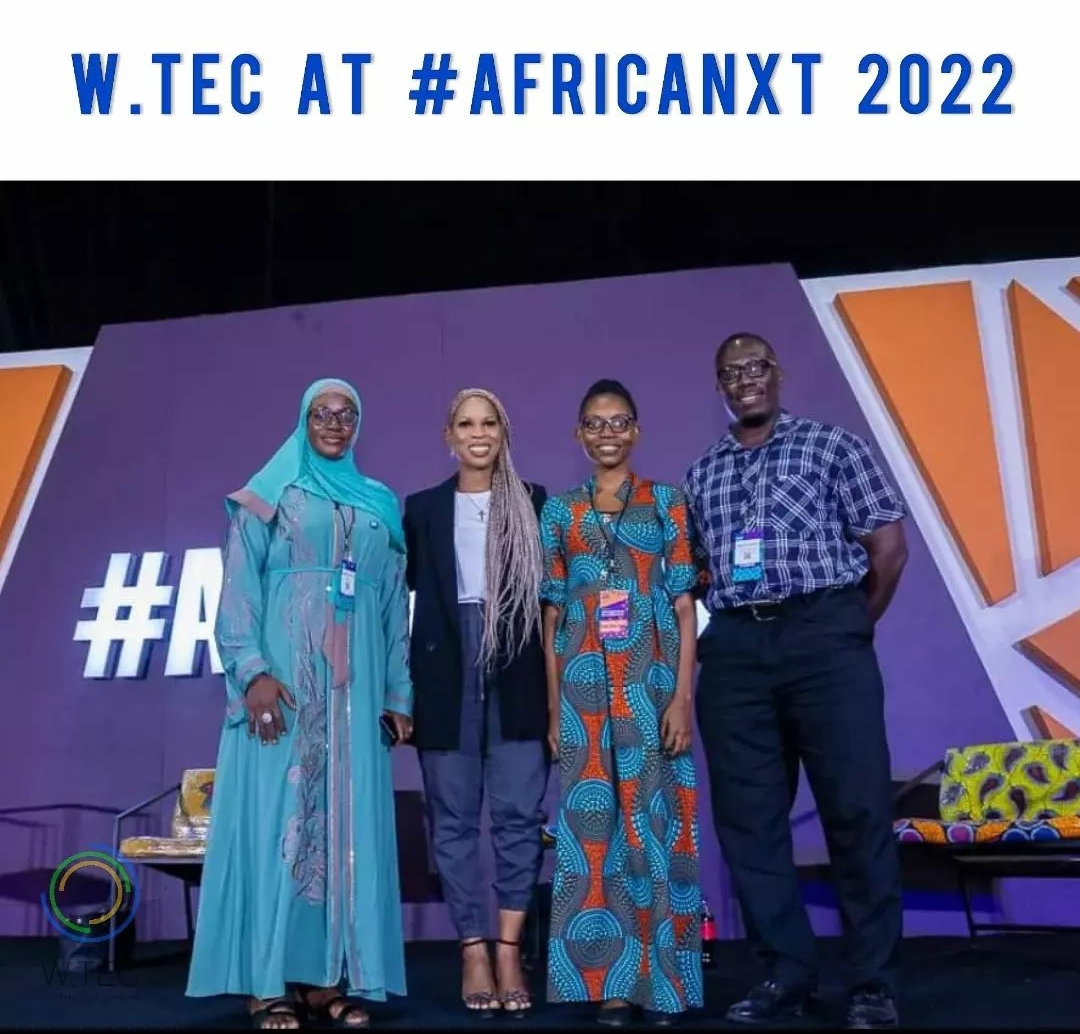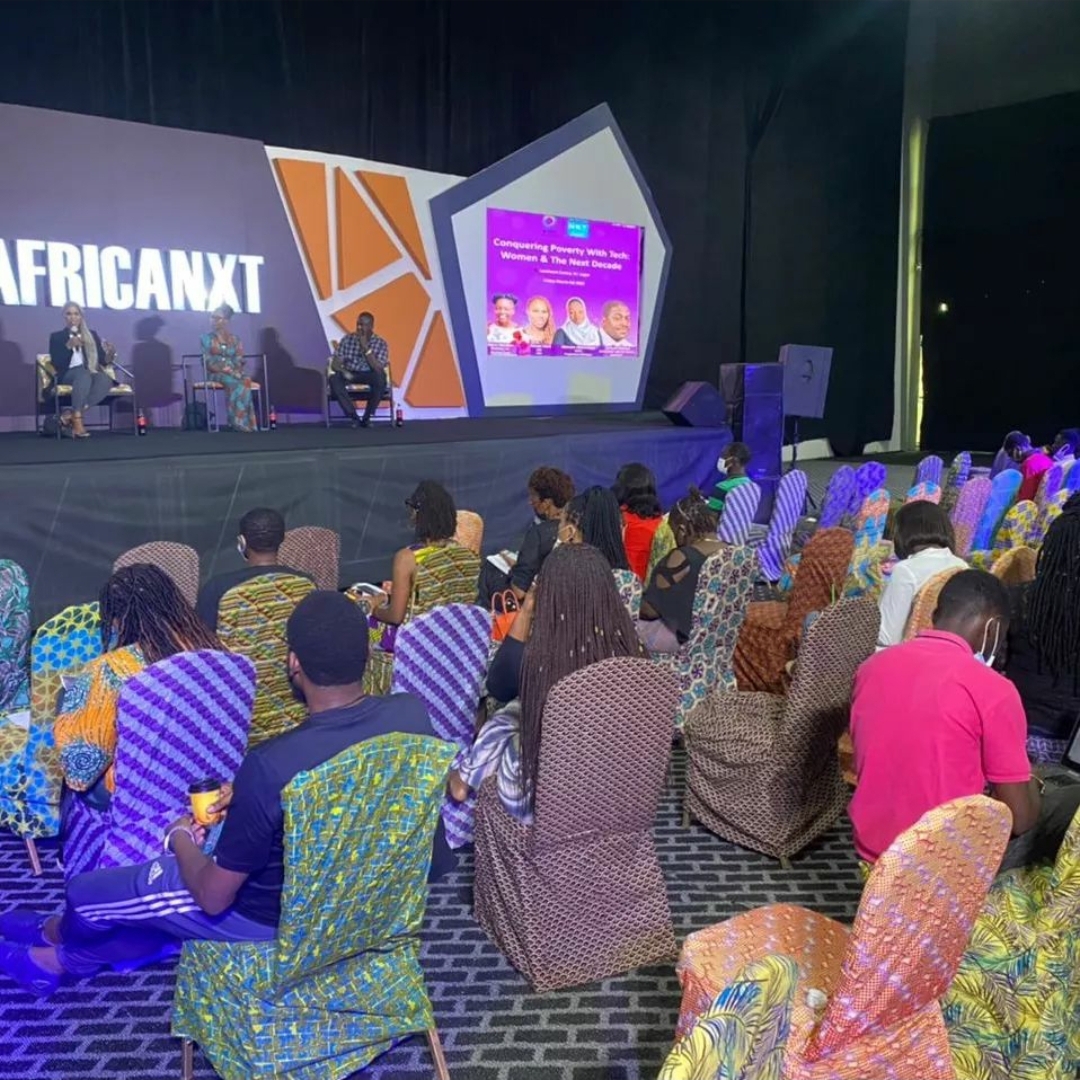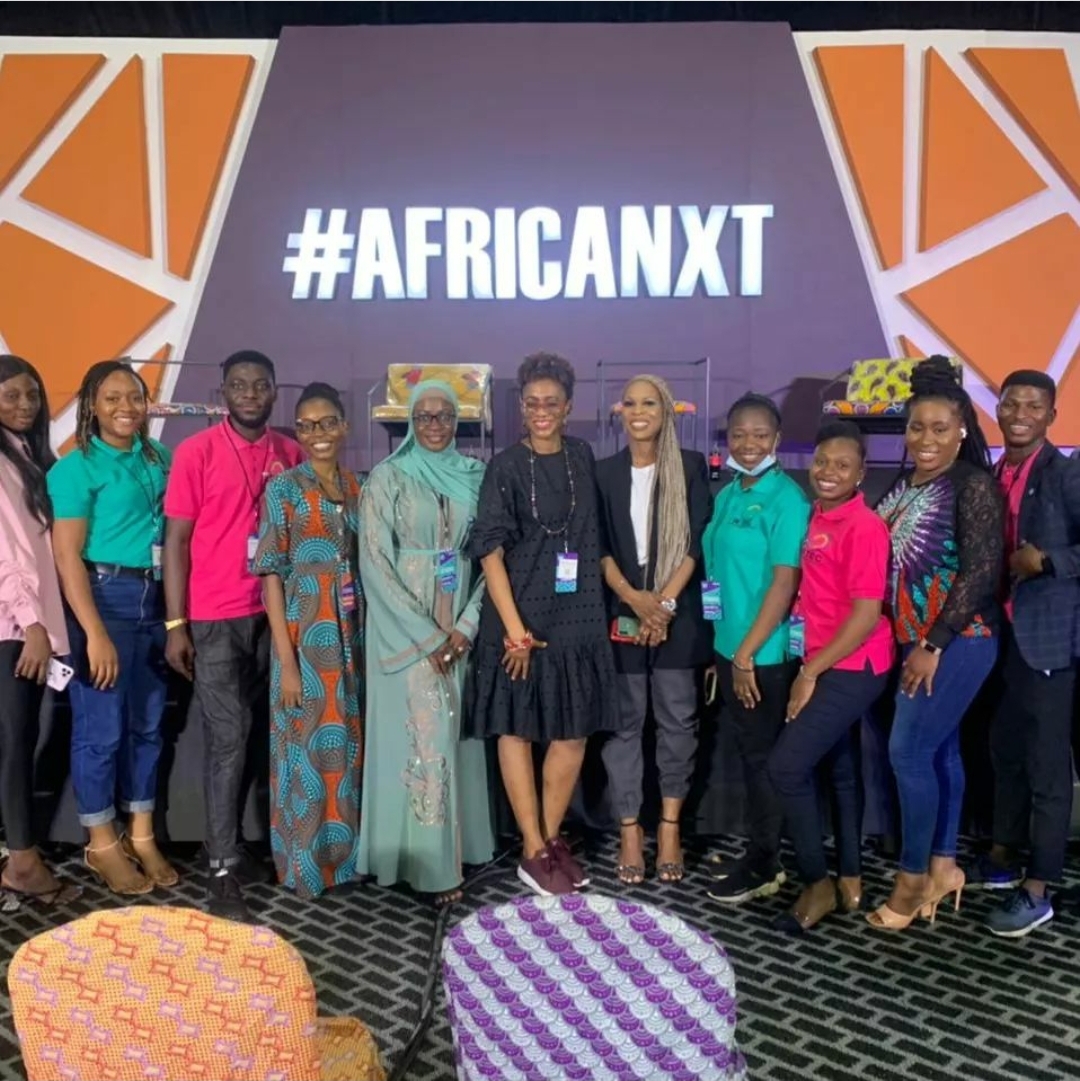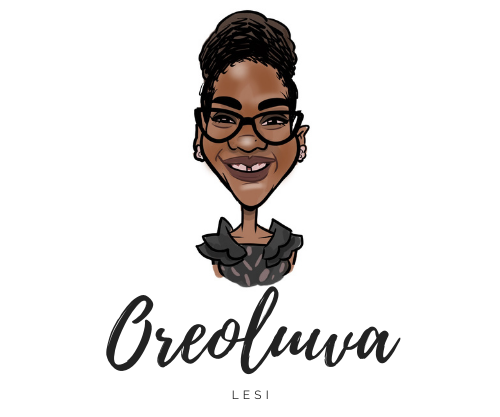
Speakers at W.TEC’s session at Africa NXT 2022
Can technology narrow the financial inequities between men and women? Can technology lift women and other marginalised groups out of poverty?
These were the main questions that the Women’s Technology Empowerment Centre (W.TEC) were seeking to explore at the panel discussion held on Friday, March 4 2022 at the 10th edition of AfricaNXT (formery known as Social Media Week Lagos).
The conversation started with the moderator Ms. Maryam Abdulsalam asking why women are lagging behind in technology.
Ommo Clark, CEO of iBez, a software development company, stated that in her opinion, women aren’t lagging behind as this would imply some type of under-peformance from women. Rather, men have dominated in this space from inception.
Mary Abiodun, Co-Founder of Colibri Africa, countered that from her research into the history of computing, she found to her amazement that women have been in this space right from the beginning. Ada Lovelace, the famed world’s first programmer was after all a woman.
As the discussion moved into ways to conquer poverty with technology, Mary shared ome of the opportunities to freelance that existed online, naming some of the more well-known websites like Fiverr and Upwork.

According to Ommo, the pandemic especially made many female entrepreneurs realise how much they needed technology to keep their businesses running. With the ensuing lockdown, all of a sudden, companies that thrived on in-person interaction found that they no longer could do that. And then, started exploring having websites with e-commerce functionality built and investing more in their social media presence.
The availability of these tools provided greater options to juggle professional and personal responsibilities, which according to her is a double-edged sword. Because you have these digital tools, you feel that you should do more when doing more also takes its toll on women’s emotional and physical well-being.
Mary spoke about “no code” tools that can be easily deployed in small to medium-sized businesses, such as Wix and Canva.
Yemi Odutola, W.TEC’s Communication Officer (who stood in for Samuel Odeleye, who was unable to make it) focused on the benefits of being able to more easily conduct financial transactions, which has long been a challenge that many African entrepreneurs faced in making and collecting payments in the course of their work.
He was very optimistic about the potential for technology to level all existing gaps and provide clear and easy to access paths to prospertity. He cited the opportunity for inter-generational learning as another, where he taught his mother to use Instagram and Twitter and how this keeps her connected to current affairs and youth culture in a way that she wasn’t before.
Ommo disagreed with his assertion and felt that as an enabler, technology amplifies existing inequalities. Available stats indicate that women make-up a large percentage of the world’s poor (according to the source, this is anything between 50% to 70% of the world’s poor). So for women who have access to tech, many new opportunities are opened up, but for women who don’t, even the few opportunities they might have had are taken away from them and new forms of inequalities are created.
To help women better utilise technology for financial prosperity, Ommo supported more supportive government policies to encourage a greater participation of women. When pressed for specific examples of policies, she suggested a form of affirmative action to create more opportunities and access for women into certain spaces currently dominated by men. This could be in admission requirements into degree programmes or recruitment into certain jobs.
Judging from the feedback during the Q and A time, this was not a popular suggestion among the audience, with some feeling that this indicated that women were somewhat less than or just not as good as men.
But overall, the speakers felt that women could and should do more to push themselves out of poverty by embracing technology more and stepping out of their comfort zone a bit more.
Ommo admitted that this is easier said than done, because in Nigeria and many parts of Africa, which are very much patriarchal in nature, women have been socialised to believe that we are less than men and this affects our decisions and eventual outcomes.
Mary concurred and proffered that women need to place more value on themselves, because this affects how women price themselves and the opportunities we take up.
Yemi stated that if Nigeria as an entirety wants to do better, women must be part of the change movement, alluding to the outcomes of the National Assembly votes against all the gender-related bills earlier that week.

Ommo reiterated her earlier point, nicely summing-up the key takeaway when thinking about technology’s role in generating economic opportunities: Technology is an enabler of whatever systems already exist. If 70% of the population don’t have access to technology in the form of digital tools and internet services, Nigeria and Africa will continue to be poor.

Recent Comments